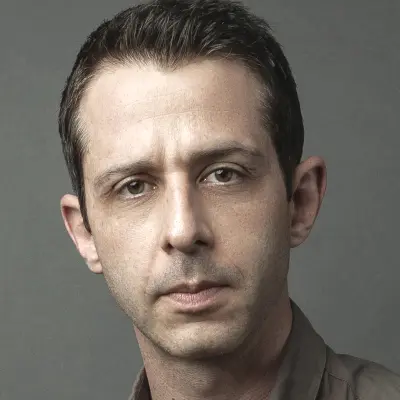Aaron Sorkin rips The New Yorker's profile of Jeremy Strong, says the Succession star "is not a nut"
-

Three days after defending Strong on Twitter, Jessica Chastain posted an open letter from Sorkin on her Twitter account since he doesn't have social media. In it, Sorkin expresses regret for participating in Michael Schulman's buzzworthy New Yorker profile of the Succession star. “After reading Michael Schulman’s profile of Jeremy Strong — a profile in which I participated — I wanted to speak up,” writes Sorkin. “I think I helped Mr. Schulman create what I believe is a distorted picture of Jeremy that asks us to roll our eyes at his acting process." Sorkin added: "Jeremy Strong is a great actor and a great company member. There isn't a writer, director or producer on Earth who wouldn't grab at the chance to cast him." When asked for examples of Strong's "very specific, very immersive acting process," Sorkin said he replied: "Jeremy's not a nut. He doesn't make people call him by his character's name on the set." Sorkin continued: "But he builds himself an on-ramp so that he's already started to give the performance by the time the director calls 'action.' He'd have off-duty police officers who were working as extras rough him up before a shot, he'd get the crowd whipped up, he doesn't rest between shots."
ALSO:
- Actually, Jeremy Strong doesn't come off that badly in The New Yorker profile of him: "All in all, it’s a fascinating piece of writing, a celebrity profile that reveals its subject as an interesting, if oft-infuriating figure," says Kayleigh Donaldson. "It’s not so much that Strong comes across badly — he seems perfectly nice at times, if unattuned to the lighter side of the craft — but that he’s so wholly invested in the urgency of his job that it sometimes feels like an SNL parody of a Serious Actor. To his credit, Strong is quick to note that what he does isn’t method acting (and neither are the back-slapping raw meat-eating theatrics we’ve come to describe as such.) Rather, he describes his process as ‘identity diffusion’, wherein he chooses ‘to clear away anything—anything—that is not the character and the circumstances of the scene.’ It certainly seems to be an all-consuming process, one that his colleagues and fellow workers on various sets frequently seem baffled by."
- Succession's dialogue is reminiscent of Joss Whedon and Diablo Cody: "In earlier years, Whedonspeak and Cody-isms were often deployed by characters the audience was supposed to be endeared to, and presented as evidence of their smarts and singularity," says Gabrielle Bruney. "But on Succession, the callow, power-hungry Roys speak this way precisely because they are glib and obnoxious. Plenty of lines from Succession could be considered Whedonspeak, particularly those delivered by Kieran Culkin’s Roman Roy, the most jocular member of the clan."
- Nicholas Braun says there's a rhythm to Succession's dialogue: "I think (creator) Jesse (Armstrong) and the writers write in a really rhythmic way," he says. "In every character and every line, I think there’s a rhythm to it. And so I embrace that and if there’s a way for me to deliver that with a certain inflection, then that’s fun for me. I like the musicality of scenes. Like, what’s the exchange? If someone responded to me with a quick answer, they responded to me with a longer answer, it tells me how much what Greg is asking or doing is working. Sometimes I have to slow it down to be like, “I really want this to land on you,” and then other times when he’s in a more comfortable space or whatever, like with Kendall or Tom, when things are good, then the rhythm changes and so I follow that a bit. And yeah, a lot of the lines are written with question marks so that leads me towards posing things that are statements as a question."
- A Northwestern University business professor uses Succession as a cautionary tale in her teaching and consultation work
- How to throw a Succession Season 3 finale party
TOPICS: Jeremy Strong, Succession, Aaron Sorkin, Jessica Chastain, Nicholas Braun, The New Yorker
